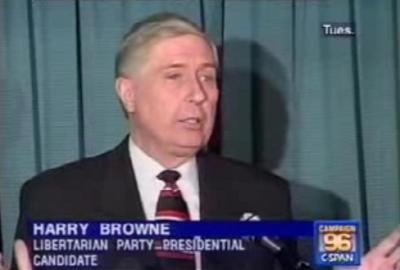Getting Media Attention
Getting Media Attention

How do you get media attention for your campaign? That’s the million-dollar question.
To some degree, this is out of your control. The media sometimes ignores the best Libertarian campaigns while showering coverage on ones where the candidate puts in very little effort. It’s the luck of the draw.
But to some degree, if not a large degree, your efforts will make a difference. Here’s some key points to remember:
- Be sure you have a website to make it easy for reporters to get basic information about your campaign, which they need to write articles. A Facebook page doesn’t do this nearly as well. They need to quickly access information about you (your bio), your key platform issues, and a photo they can use.
- Build an email list of media in your district. Ask your state affiliate if they can give you one to start. Then update this list with each media contact you encounter.
- Be responsive to media inquiries. Reporters have deadlines to meet. Make their job easy by getting responses to them as quickly as possible. Ask when their deadline is.
- Issue press releases and post them to your website. They should be written like a news article with an objective tone. You can include opinions in a quote of the candidate. If the piece is well-written, some media outlets may publish your press release as is, or with minor editing. Many bloggers may do the same.
- If possible, get a volunteer to be your media coordinator. If possible, have them take the time to get to know the reporters and editors that cover your race. This should include people who update the outlet’s website, who may act somewhat independently of those who publish the print edition.
- Where possible, arrange for the candidate to meet with reporters and editors in person as well.
- Don’t be shy to ask an inquiring reporter to send questions via email, that you can reply to via email, rather than do a live interview. This gives you time to develop your best, succinct responses that are more likely to be quoted and which will put your campaign in the best light possible. As always, ask when their deadline is and get responses back to them ASAP.
- Be ready for anything to happen. A reporter may write a puff piece about you one day, and a hit piece the next – or vice versa. So don’t write them off, nor expect too much.
- Consider anything you say to a reporter to be “on the record.”
- Always be polite and professional



